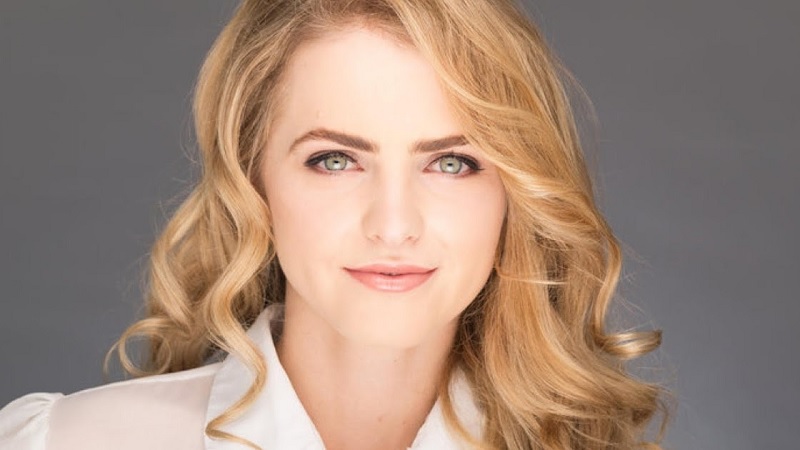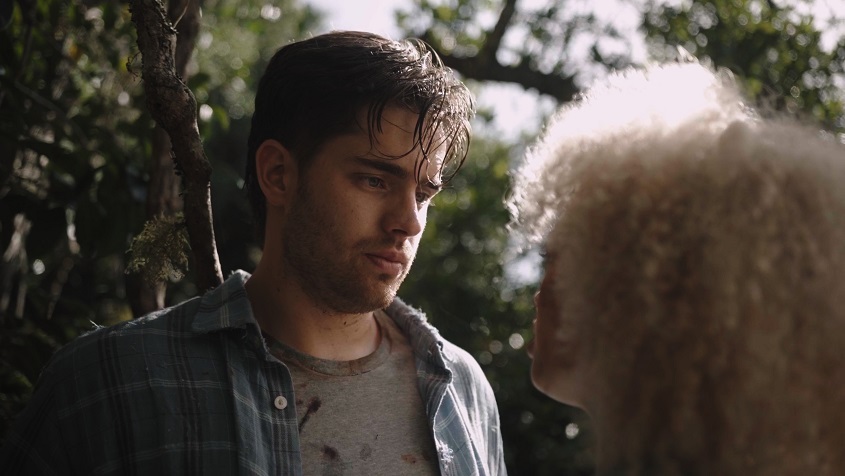Reine Swart is a dynamic force in the world of filmmaking, bringing a unique and compelling vision to every project she undertakes. With a keen eye for visual storytelling and a knack for crafting narratives that resonate deeply, Swart navigates the complexities of human experience through her lens.

Her latest film, Bos, is a spellbinding post-apocalyptic romance adventure drama, which she wrote, produced and edited. Reviewmyscript.com caught up with Swart to find out more about her writing process.
How did the idea for this script come to you?
I was inspired by the idea of isolation and survival, but also by something deeper, what would the world look like without us? During lockdowns and global upheaval, it became clear how quickly nature reclaims space when human presence fades. That inspired the setting of Bos, where the Earth is green, vibrant, and alive; thriving precisely because people are no longer dominating it. I wanted to explore that contrast: human vulnerability versus nature’s resilience.
It’s a love story and a game of survival… was this always the plan for your script or how did it evolve?
Initially, it was about survival. But as I developed the story, I realized that emotional survival is just as important, if not more so, than physical survival. The love story emerged organically as Heinrich and Em’s relationship grew. It wasn’t about grand romance, but about intimacy born from silence and shared struggle. The balance between tension and tenderness became the heart of the film.
The characters are diverse and complex in their motivations… did you write with specific people or actors in mind?
I had a clear sense of the characters, but I didn’t write with specific actors in mind; except for Em, I initially had another actress in mind, but when Simone Neethling stepped into the role, it was clear that everything worked out exactly as it should.
The themes of survival, loss, and hope are prominent. What message or feeling did you want to convey to the audience?
I wanted to convey that even in the most broken, abandoned places, both physically and
emotionally, love and hope can still take root. Nature plays a big role in this story; as humanity fades, the Earth begins to heal. There’s a quiet, bittersweet optimism in that, and I hoped to reflect that in the characters’ journey as well.
The pacing of the script is deliberate. Can you discuss your choices regarding the structure and flow of the narrative?
Yes, I wanted the pacing to reflect the stillness and isolation of the world. Long silences, slow tension, and gradual emotional build-up allow the viewer to really settle into the characters’ experience. Then things speed up as they encounter the bandits and tension builds.

How did you balance the elements of fantasy and post-apocalyptic survival in the script?
The fantasy elements were woven in subtly. Em’s abilities and the world’s surreal silence hint at something mystical, but I never wanted to overexplain. Letting the magical realism remain a quiet presence helped keep the story grounded in emotional reality, while still allowing the audience to feel like there’s something bigger at play, something ancient and unknowable in nature.
What was your creative process for developing this script? Did you start with characters, worldbuilding, or a specific plot point?
I started with the mood and world, a quiet, overgrown Earth where nature thrives and humanity has vanished. From there, I imagined a man who believes he’s alone, and how his internal world would shift upon meeting someone else. The characters grew out of the environment. Then shaped the plot by how Heinrich and Em's bond evolved through that space and beyond their obstacles.
What were some of the biggest challenges you faced while writing this script, and how did you overcome them?
One challenge was keeping the tension alive without heavy dialogue or traditional action
scenes. So much of the story relies on silence and subtle interaction. It took restraint to trust that the quiet moments would carry emotional weight.

What are your influences as a writer, particularly in the genres of post-apocalyptic and fantasy?
I’ve always been drawn to stories that blend grounded emotion with a touch of the surreal, worlds that feel just a step away from our own but are shaped by mystery, magic, or silence. Tuck Everlasting had a profound impact on me when I was young; it explores timeless themes like immortality, love, and letting go, all wrapped in a beautifully understated narrative. Lady in the Water by M. Night Shyamalan is another favorite; I love how it builds mythology within a very ordinary setting and trusts the audience to engage with wonder. And Z for Zachariah is a perfect example of post-apocalyptic storytelling that’s quiet, intimate, and character-driven.
These works all influenced my approach to Bos; stories where fantasy and isolation meet, where human connection carries more weight than spectacle, and where the quiet moments often speak the loudest.
What aspects of this story are most important to you, and what are you most proud of?
The emotional honesty between Heinrich and Em is what I’m most proud of. Their connection grows not through words, but through presence, small gestures, and trust. I’m also proud of how nature is portrayed; not as a backdrop, but as a living force. The idea that the Earth flourishes when humans are gone is a quiet yet powerful theme, and I think the film captures that beautifully.
Now that the script has been adapted – do you think it was an accurate representation of the words on the page?
The finished film stayed very true to our original vision and the team did a beautiful job.
